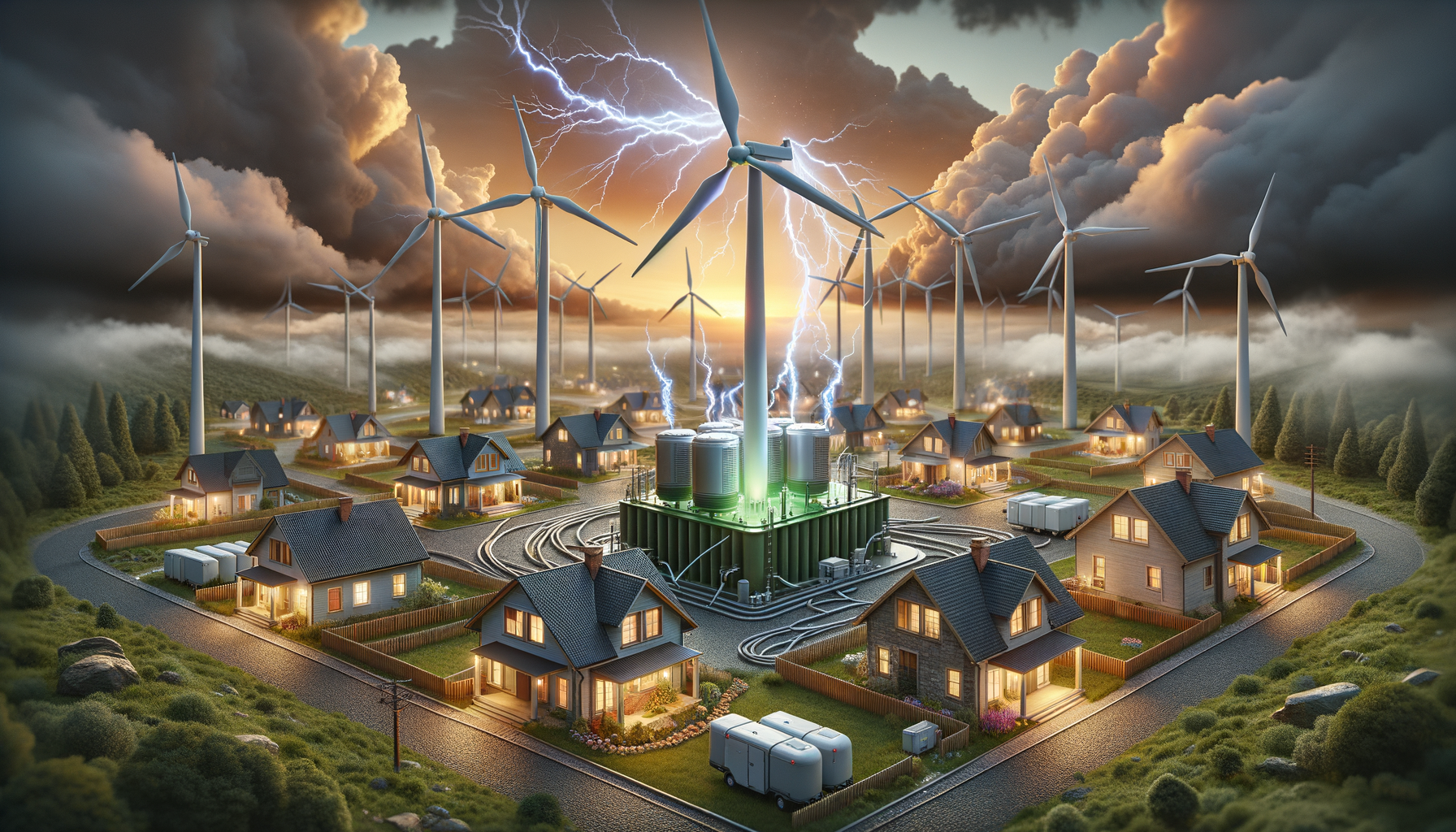
Harnessing the Potential of Home Generators
The Rising Importance of Home Generators
In an age where energy reliability is increasingly uncertain, home generators have emerged as essential assets for households. With unpredictable weather patterns and an aging power grid, power outages are becoming more frequent, leaving homes vulnerable to prolonged periods without electricity. This is where home generators play a critical role, providing a reliable backup power source that ensures the continuity of daily life.
Home generators offer peace of mind by maintaining functionality during blackouts. They keep essential appliances running, such as refrigerators, heating systems, and medical devices, which is crucial for safety and comfort. This capability is not just a luxury but a necessity for many, particularly in regions prone to severe weather.
Moreover, home generators contribute to energy independence. By reducing reliance on the main power grid, homeowners can better manage their energy needs and costs. This is particularly beneficial in areas with high energy prices or where grid reliability is compromised. As energy autonomy becomes more valued, the demand for home generators is expected to rise.
Types of Home Generators: Choosing the Right Fit
Home generators come in various types, each suited to different needs and circumstances. Understanding these options is crucial to making an informed decision.
Firstly, portable generators are a popular choice for their flexibility and cost-effectiveness. They are easy to move and can power essential appliances during short-term outages. However, they require manual setup and fuel management, which might not be ideal for everyone.
On the other hand, standby generators offer a more permanent solution. These are installed directly into a home’s electrical system and automatically activate during a power outage. While they are more expensive, their convenience and reliability make them a preferred choice for many homeowners.
Additionally, inverter generators are gaining popularity due to their efficiency and quiet operation. They are ideal for sensitive electronics, as they provide stable power with minimal fluctuations. This makes them an excellent choice for those who prioritize energy efficiency and noise reduction.
- Portable Generators: Flexible, cost-effective, manual setup required.
- Standby Generators: Permanent, reliable, automatic activation.
- Inverter Generators: Efficient, quiet, ideal for sensitive electronics.
Installation and Maintenance Considerations
Proper installation and maintenance are vital to ensuring the effective operation of home generators. When installing a generator, it’s essential to consider factors such as location, fuel type, and electrical connections. Generators should be placed in a well-ventilated area to prevent carbon monoxide buildup and should be protected from extreme weather conditions.
Fuel type is another critical consideration. Generators can run on various fuels, including gasoline, diesel, propane, or natural gas. Each has its advantages and disadvantages, such as availability, cost, and storage requirements. Selecting the right fuel type can significantly impact the generator’s efficiency and operating costs.
Regular maintenance is crucial for the longevity and reliability of a home generator. This includes routine checks of fuel levels, oil changes, and inspection of electrical connections. Scheduling professional maintenance annually can help identify potential issues before they become significant problems.
- Location: Ensure proper ventilation and weather protection.
- Fuel Type: Consider availability, cost, and storage.
- Maintenance: Regular checks and professional servicing.
Environmental and Economic Impact
The environmental and economic impacts of home generators are important considerations for potential buyers. While generators provide essential power backup, they also consume fuel, which can have environmental implications. Choosing a generator with a higher efficiency rating can reduce fuel consumption and emissions.
Economically, the initial investment in a home generator can be substantial, but the long-term benefits often outweigh the costs. By providing power during outages, generators can prevent food spoilage, maintain home security systems, and support home-based businesses, ultimately saving money in the long run.
Moreover, with advancements in technology, newer models are becoming more energy-efficient and environmentally friendly. Some generators now come equipped with smart technology, allowing users to monitor and optimize their energy usage, further reducing costs and environmental impact.
- Environmental Impact: Fuel consumption and emissions.
- Economic Benefits: Prevents spoilage, supports security, and business continuity.
- Technological Advancements: Smart technology for energy optimization.
Conclusion: Making an Informed Decision
In conclusion, home generators are invaluable assets for ensuring energy reliability and independence. As power outages become more common, the need for reliable backup power solutions grows. By understanding the different types of generators, installation and maintenance requirements, and their environmental and economic impacts, homeowners can make informed decisions that best suit their needs and circumstances.
Investing in a home generator is not just about convenience; it’s about safeguarding your home and family against the uncertainties of power disruptions. With careful consideration and planning, a home generator can provide peace of mind and security, making it a worthwhile addition to any household.

